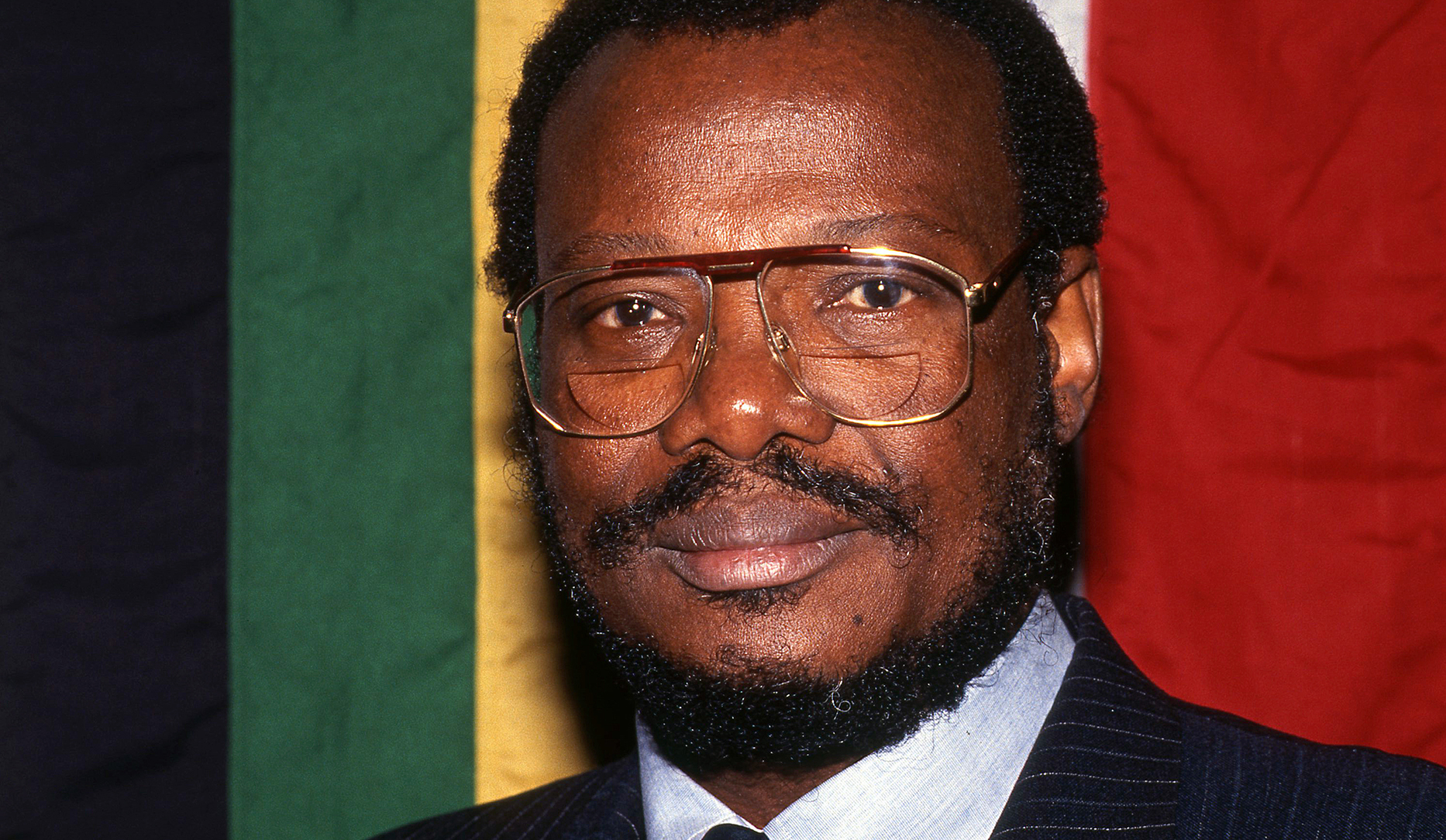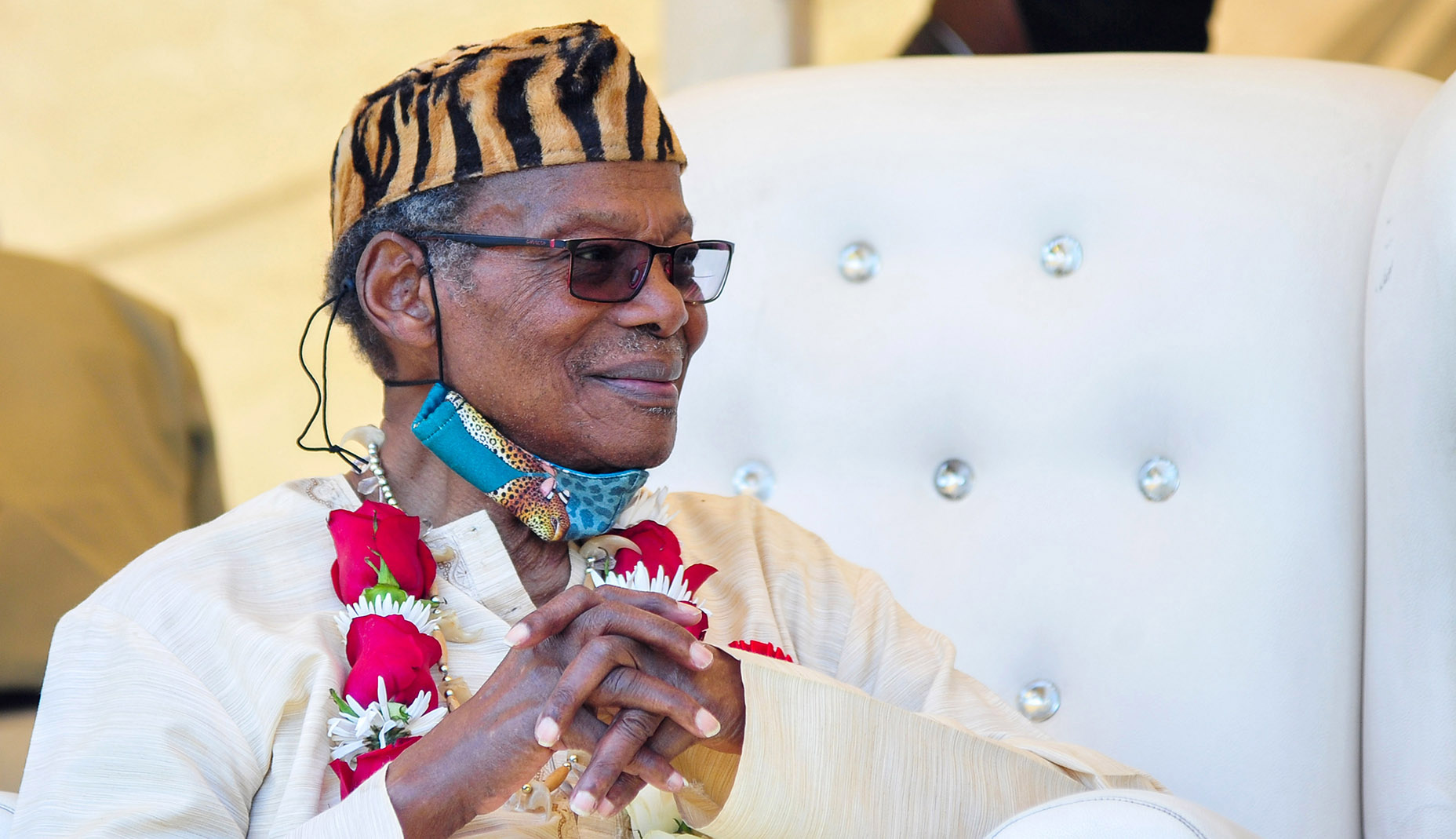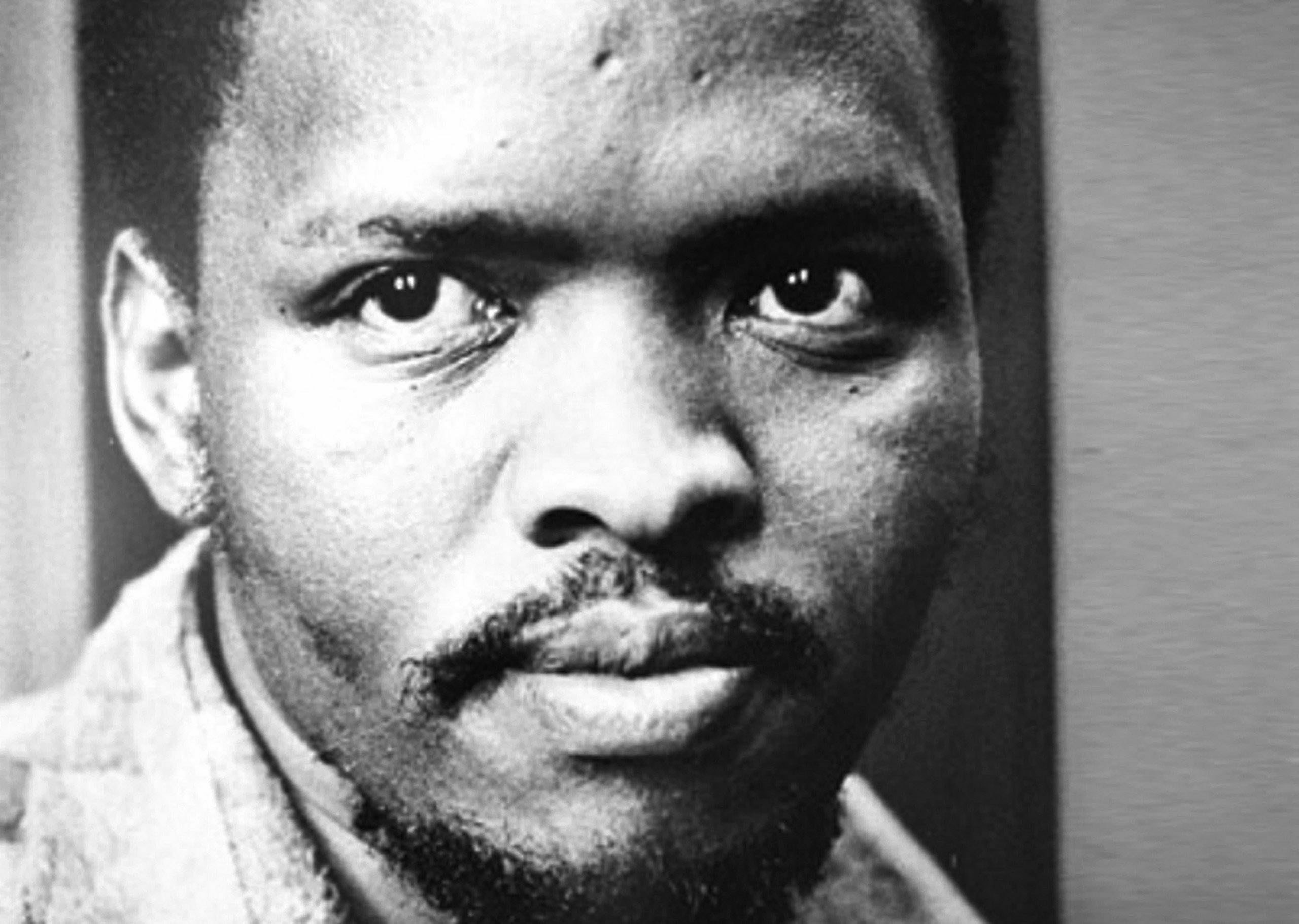I was in exile when I wrote a eulogy for Rick Turner in the student newspaper at Warwick University on 19 January 1978. I was devastated to learn of his assassination in his home in Durban on 8 January that year. There was, however, much I did not know about Turner. The rush of strikes, feverish union organisation, our mutual bannings, surveillance, conversations cut short by security branch raids and the isolation of house arrest led to a fragmented knowledge of each other. There were issues that remained far from being discussed and resolved.
Foremost is Turner’s view of the rise of the unions and the political direction of the fighting labour movement. Just how was the freedom under socialism he wrote of to be realised? Our style of work then was to discuss late into the night.
Now, decades after Turner’s assassination, we return to his text.
Exploring a strategy for freedom
An indication of his political orientation comes in a section of his 1973 postscript (“Separate Development vs Black Consciousness”) to his 1972 work The Eye of the Needle: Towards Participatory Democracy in South Africa. His language changes from “apartheid” to “separate development”.
In the postscript he carefully dissects black consciousness’s strategy and that of Bantustan (particularly Mangosuthu Gatsha Buthelezi’s) leadership.
He finds that the ideological work of “articulating and propagating a new black culture” had not “progressed very far”. By contrast the Buthelezi strategy had led to the latter being “recognised by the bulk of Africans as their present leader”.
Although the black consciousness strategy of black solidarity was tenable, he argues that there are equally strong arguments “to use the instruments of separate development to bring about the end of separate development”.
Indeed, he presents three arguments for taking up the “Buthelezi strategy”.
 (Photo: quaggabooks.co.za / Wikipedia)
(Photo: quaggabooks.co.za / Wikipedia)
First, participation in Bantustans did not imply support for apartheid. Second, the Bantustans would continue to exist anyway. Third, the state was not likely to let black consciousness continue and it would be better to contest Bantustan elections and win, rather than leave power to a “group of puppets”.
Turner recognises that the large sums available in each Bantustan to “build up support through a process of patronage, near corruption, and actual corruption” would make it possible “for unscrupulous individuals to build up a political machine” by providing “a variety of benefits to a range of clients”. This “could inhibit the development of genuine political organisations”.
Every one of these arguments was fiercely contested by anti-apartheid activist Steve Biko, particularly the first. The other two appear based on the notion that there could be no revolution in South Africa and that the expansion of the structures of colonial indirect rule, the Bantustans, would continue indefinitely.
Much of this was discussed with Turner, in the discursive style of the time, without reference to the text of The Eye of the Needle. As French philosopher Derrida has written, however, “there is no outside-text”. The text lives on beyond conversation, but nothing comes to us unmediated, in a pure state.
Two years before The Eye was published, on 11 June 1970, at Nongoma, Zululand, in the presence of the minister of bantu affairs, Chief Buthelezi swore an oath of loyalty “not only to the government of the day, but to white South Africa”.
Buthelezi said: “The duty that falls on our shoulders now as a territorial authority is not to spare ourselves in working with your department and your government to implement this scheme and to do all to make it work.” He arrived at power after begging and bullying the regime to decree the banishment of his brother, who contested the chieftainship.
For once, Buthelezi was unambiguous. Unlike other speeches, this one was not republished in Sechaba, the official organ of the ANC in exile.
Buthelezi then became the supreme chief ruling 282 groups classified as tribes and commanding 188 tribal authorities and 22 regional authorities. The chiefs were loyal – he paid their salaries.
However, accepting the Buthelezi strategy meant also accepting the dispossession of citizenship for black workers, a rising dictatorship, the consolidation of apartheid through indirect rule, the subjugation of women and the break-up of the national state.
A “Bonaparte” of the lesser order, Buthelezi had mastered the art of talking left and walking right; of claiming more land to show radicalism and pretending not to know that that led to more black people being dumped from white areas to die; to be entertained by US presidents and yet to speak for Africa; to condemn pass laws while being the loyal opposition; to be outspoken but then gushingly penitent.
 Gatsha Mangosuthu Buthelezi mastered the art of talking left and walking right. (Photo: Wessel Oosthuizen / Gallo Images)
Gatsha Mangosuthu Buthelezi mastered the art of talking left and walking right. (Photo: Wessel Oosthuizen / Gallo Images)
Despite this grand performance he has been true to one lodestar: the oath of June 1970.
The native administration system was one of dictatorship.
All Bantustan leaders became dictators by accepting their positions. They had the power to appoint or dismiss chiefs without regard to custom, tradition or consultation. Buthelezi carried the power of banishment and to establish a dictatorship and decide whether to have elections or not. When the ANC foolishly approached him to set up training camps he never hesitated to report this to the security police and give evidence against them. There never were elections in the KwaZulu Bantustan.
Emerging unions
Unfortunately, Turner did not analyse the structure of native authorities and the intrinsic and abject subordination of women in chief-headed systems. He did not fully explore the expanding planes of politics opening around him in the infant unions and civics, beyond black consciousness. At one level these could have become the labour party associated with BI Dladla that Buthelezi never tolerated. These later became drawn into the United Democratic Front as black consciousness disintegrated in the 1980s.
One option never considered in The Eye was that the workers’ movement in South Africa would pass through stages of consciousness and organisation as it did in virtually all capitalist countries and dependent continents such as Latin America – starting with benefit funds, then developing trade unions and finally emerging as workers’ parties. This idea was prefigured at a mass meeting in June 1971 when the idea of a benefit fund was suggested and launched.
Between a traditional leader and his subjects there could not be an equal exchange. Instead, a state of violence grew between the armed Bantustan apparatus and the unions.
All of this happened during Turner’s engagement with the unions and was reported to him. Unfortunately, he was reluctant to turn away from his well-crafted strategy. He did not give the same weight to the trade unionists as to black consciousness. With Buthelezi himself, I understand, he was a friend.
 Prince Mangosuthu Gatsha Buthelezi at an IFP community meeting at Gandhi Luthuli Peace Park in Durban on 11 October 2021. (Photo: Gallo Images / Darren Stewart)
Prince Mangosuthu Gatsha Buthelezi at an IFP community meeting at Gandhi Luthuli Peace Park in Durban on 11 October 2021. (Photo: Gallo Images / Darren Stewart)
By not spelling out the necessity of the working class developing a workers’ party to carry out socialist policies he was implicitly advocating attachment to one pro-capitalist nationalist group or another. Indeed, in a section on organisational possibilities rather than an independent labour movement sufficient unto itself, he raises the issue of the need for unions to be attached to a “source of political activity within the black community” to avoid a non-political direction.
Mass strikes: Discontinuity through struggle
The outbreak of the 1973 Durban Strikes from the centres of concentrated labour in the city and beyond was not anticipated by anyone, even by those on the Wages Commission who had been producing workers’ newspapers and pamphlets since its formation in June 1971.
The strikes throughout the then province of Natal did not change everything, but they entirely altered the balance of forces between the oppressors and oppressed. The black working class, just as it was classified as inert and powerless, announced itself in roared demands for the doubling of wages, for the right to strike and to be heard, for equal pay for women, and to take its place at the bargaining table. Many of these strikers had close links to the remaining land in the Bantustans, but they also declared themselves workers in the city.
There are stages in consciousness among workers. Prior to these strikes workers were reluctant to talk of trade unions. Later the unions formed and expanded rapidly.
According to Eddie Webster, Turner “largely” wrote the authoritative book on the subject, titled The Durban Strikes 1973. At the time, in discussions of the draft, some lessons and recommendations were contested. Did all workers have to go through the stage from works committees or liaison committees to establish a union base?
We wanted mass unionisation on a national basis to be initiated. Turner logically but unnecessarily (we felt) argued that works committees were a necessary and essential precursor. We felt workers had now skipped or moved beyond that stage.
Similarly there were differences expressing the purpose of unions as the stabilising factor in industrial relations. We saw them as the instrument of struggle for ongoing change.
 Overcoming the internalisation of racism and the rationalisation of inequality was something Steve Biko was aiming at with his efforts to build a movement, located in black consciousness. Biko realised that, through Bantu education and other means, many black people had internalised racial inferiority. (Photo: biopgraphy.com / Wikipedia)
Overcoming the internalisation of racism and the rationalisation of inequality was something Steve Biko was aiming at with his efforts to build a movement, located in black consciousness. Biko realised that, through Bantu education and other means, many black people had internalised racial inferiority. (Photo: biopgraphy.com / Wikipedia)
Some, not all, of these debates were lost to Turner’s logical framework of stages to development.
In strikes and struggles before and during the 1973 mass strikes, any authority other than the workers was rejected. JB Buthelezi, an uncle to Gatsha Buthelezi, termed their “representative”, was utterly rejected by stevedoring workers. King Goodwill kaBhekuzulu had to withdraw from the strike at Coronation Tile and Brick, the brickworks company where the first strike took place on 9 January 1973. This was the discontinuity of subservience through rising consciousness.
In the language of mass movement and crowd-shouted demands rather than a finished manifesto, the working class was announcing a recovery from the defeats of the 1960s. Rather than the linkages of tribe or homeboy networks the underground organisation in the brickyards, docks and elsewhere drew together migrants and “settled”, Pondo and Zulu, women and men, Indians and Africans – imperfectly but practically.
In the face of the granite resistance to change and the substantial strategy of Bantustans, a new element of change propelled from below was announced.
Some results came almost immediately.
Prime Minister John Vorster, the notorious brute, declared that the “labour units” were “human beings with souls”. The apartheid regime rephrased the racist labour relations law to allow some form of legal “disputes” resolution. White attitudes changed: a majority held the pitiable wages of women in the textile company Frame Group as unacceptable. The corporates said that labour stability had to be built on the basis of African workers in trade unions.
More words – not actions – followed, but the shift had been made.
Change forced from below had begun and this was a challenge to black politicians and movements as much as to the regime. If black workers could speak for themselves, what would be the role of the nationalist liberator, Bantustan collaborator or black consciousness leader in the face of class consciousness?
A Kuomintang strategy
Equally, the mass strikes were a challenge to the radical nationalist leader. How to ride a powerful living movement full of demands for complete change? Such a mass movement had to be appropriated and locked into position or it had to be smashed. In some ways there was a greater challenge to the aspirant liberator.
That is the law of liberation movements worldwide. A liberation movement has a simple structure: a leader, a narrow set of unarmed and armed cadres supporting the leader, and a vast undifferentiated mass of supporters pledged to supporting the leader. Ideology and policies will change from time to time according to the zigzags of the “Bonaparte”. Once in power the leaders adapt themselves to the international balance of forces, pursue their own wealth and establish, if possible, a dynasty.
Any spontaneous and independent mass movement by the dispossessed is a challenge to resistance leaders as much as to the existing order of power.
Where there is continuing independence, the leadership and followers may be eliminated.
The Kuomintang strategy is what happened dramatically in China’s 1927 Shanghai massacre and in the Indonesian mass killings of 1965-66, with hundreds of thousands or millions murdered. There is growing evidence that something similar happened to thousands of young worker fighters within the South West Africa People’s Organisation in the then South West Africa during the period of détente and thereafter, and possibly in the ANC too.
Decades later the facts emerge even when archives are sealed.
Colonial economy
Understanding the tension between leaders and the working class is necessary to understand the time.
The Bantustan strategy was part of the colonial economy which depended not just on low wages but on a cheap labour system involving chiefs, tribal labour bureaux, the pass system, compounds, townships and the resulting exploitation of single men working for ultra-low wages. This system was one in which the two segments, white society and black society, were intimately connected in production and absolutely divided in distribution.
A decisive shift to the city would bring an end to the cheap labour system. This is where the political leadership of the Bantustans had a useful role, both in ruling these contradictions and explaining the necessary compromises and maintaining racial capitalism. In a changing world there had to be willing black participants prepared to explain the balance of power and credibly defend these necessary compromises.
At the end of this road rose the apartheid utopia: a confederation of ethnically based black states throughout southern Africa, politically independent and ruled by nationalists of various views but all utterly dependent on the South African economic powerhouse. Again, independence with the necessary compromises.
Such a political regime, a structure of traditional and modern, had the most extraordinary utility to capitalism, where the profits on the gold mines often were greater than wages. Black wages on mines did not increase for 60 years. Such super-profits were unrealisable elsewhere.
The radical nationalists had less interest in the generation of profits: ideas such as the quest for true humanity or freedom to be realised in participatory democracy all had to have this starting point or had to be a false exercise.
The flights of fancy, the examination of utopias, the construction of consciousness, the endless debates and defiant race consciousness, the combative nationalism and intellectual anti-communism – all were paid for by cheap labour.
The mixes of views of freedom, the quest for true humanity, without the recognition of necessity, had to avoid a critique of the political economy of apartheid.
Freedom from a brutal state, from the incorporation of “traditionalism” into this state, is only possible with the ending of the state’s native administration, to be replaced by democratic self-administration by rural people and parties of the national bourgeoisie everywhere. This requires the independent organisation of working people and the attainment of power by ordinary working people.
 Prime Minister John Vorster, the notorious brute, declared that the 'labour units' were 'human beings with souls'. (Photo: Wessel Oosthuizen / Gallo Images)
Prime Minister John Vorster, the notorious brute, declared that the 'labour units' were 'human beings with souls'. (Photo: Wessel Oosthuizen / Gallo Images)
The man and the text
“Fundamentally, wealth and all the products necessary to life in capitalism are produced by working people.”
This is a truism which will not be found in the politics of any party that is not of the working class – except on special occasions. Instead, such parties have to argue that their leadership and policies will fairly resolve all society’s problems and bring a better life for all. They determine the national destiny.
Despite the popularity of the man among both liberal whites and black workers at the time of writing The Eye, the “Buthelezi strategy” could not lead to easing the cheap labour system, getting unions recognised in the Bantustans, or political freedom.
It was a grievous fault also shared by the ANC and nurtured by strong personal and political links between Buthelezi and OR Tambo and Nelson Mandela.
The idea of diverting the workers to be foot soldiers of nationalism has obstructed the working class rising out of apartheid to claim its own politics leading to a mass workers’ party. Such a prospect has been skilfully avoided by the existing political order. It still remains, however, the foremost strategy to begin to pull South Africa out of the disastrous decline of capitalism, ably protected by all parties in South Africa.
The massive workers’ movement in Namibia and South Africa which started brilliantly with mass strikes and the workers in self-declared leadership has been sidetracked into dismal, corrupt nationalist mismanagement and anti-black xenophobia. Whole industries have vanished, leaving 12 million people unemployed.
It seems unimaginable that the native administration system established by British colonialism continues as before and is even reinforced, and that inequality in South Africa is greater now than that which apartheid achieved. It is also astonishing that years after the achievement of power by the ANC, apartheid killers are not prosecuted and those who were intimately connected to the apartheid machine of terrible destruction are praised as statesmen.
Proclaimed black revolutionaries have turned the struggle for equality into one for personal equity. Racial capitalism is more than the uneven rise of black as well as white directors to great wealth. It rests on centuries of dispossession and exploitation through many factors, including an unreformable set of structures of native administration.
Confronting the strategies outlined in The Eye of the Needle introduced me to a man I never knew and also to some uncomfortable passages. Some of this had been taken up with him in urgent discussions when banned but, unfortunately, more than once interrupted by the security branch. We were amateurs in the underground political exchanges needed to resolve key issues. Additionally we were caught up in struggle and, arrogantly, not reading.
We remember Turner for his brilliant perceptions, for his mastery of dispassionate analysis, for his consummate lectures, for his rare achievement of deep friendship across the divide, for his steadfast defence of those under attack, for his life lived daily in defiance of law and convention and for paying the ultimate price.
Also, and uncomfortably, we have to add: for a well-developed argument for working with the leader of an apartheid Bantustan dictatorship.
Between friends alive and dead there are deep bonds of affection and also, at times, unresolved differences and questions. The living text keeps these issues alive. As Spinoza wrote: “To understand is to be free.”
In order to think we have, in various ways, to refocus our ideas away from the monolithic concepts of race and ethnicity which have been embedded in consciousness through colonialism and apartheid and raise the free organisation of working people. As Turner once put it: “We have to be able to think more clearly than the state allows.”
Our perilous condition shows the need for continuous revolution – not for chaos, but to resolve our chaos, and secure the material freedoms which are yet to be found. DM/MC
This is the third of a short series of articles reflecting on Rick Turner’s life and writing. The first by Chris Desmond and Ben Cousins is here. The second by Halton Cheadle is here. The articles are published in honour of the 50th anniversary of Turner’s book, Eye of the Needle, and the relevance of his forward-thinking philosophy to the present day.
David Hemson was active in student politics in the 1960s and served as vice-president (international relations) of Nusas. In the early 1970s he edited Race Relations News and was charged for being a leader of a march of Wits students which led to the release of Winnie Mandela and others from prison. With Halton Cheadle, in March 1971, he established the Wages Commission on the Durban campus. After participating in the Durban strikes in 1973 he was banned with others in January 1974.
He completed his doctorate on Durban dockers in exile at the University of Warwick and became one of the founders of the Marxist Workers Tendency of the ANC. When there was a breakdown in relations between Buthelezi and the ANC he was expelled from the ANC in November 1979 while lecturing at the University of Dar es Salaam.
He relocated to Zimbabwe in the early 1980s and became active in trade unions. In 1985 he was detained in Chikurubi Maximum Prison for “organising a workers’ party” and deported to the UK. He returned to South Africa in 1990 and became a research director with the Human Sciences Research Council.
He now undertakes evaluations as a water and climate change expert and lives in the US. He is an active socialist and supporter of independent trade unions in Belarus and socialist movements in Zimbabwe, Namibia, South Africa and elsewhere. He is working to help establish secondary education otherwise denied to Rohingya refugees in Bangladesh.
[hearken id="daily-maverick/9194"]
[hearken id="daily-maverick/9193"]




 Prime Minister John Vorster, the notorious brute, declared that the “labour units” were “human beings with souls”. The apartheid regime rephrased the racist labour relations law to allow some form of legal “disputes” resolution. White attitudes changed: a majority held the pitiable wages of women in the textile company Frame Group as unacceptable. The corporates said that labour stability had to be built on the basis of African workers in trade unions. (Photo by Wessel Oosthuizen/Gallo Images)
Prime Minister John Vorster, the notorious brute, declared that the “labour units” were “human beings with souls”. The apartheid regime rephrased the racist labour relations law to allow some form of legal “disputes” resolution. White attitudes changed: a majority held the pitiable wages of women in the textile company Frame Group as unacceptable. The corporates said that labour stability had to be built on the basis of African workers in trade unions. (Photo by Wessel Oosthuizen/Gallo Images)